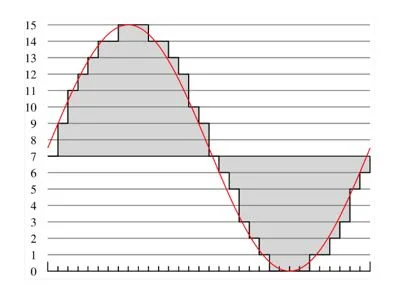The 30-Day Marketing Sprint: Accomplishing More with Delegated Help
You know that overwhelming feeling when you look at your marketing to-do list and realize you’d need three extra versions of yourself to get it all done? You’re not alone.
Most business owners spend an average of 10-15 hours per week on marketing tasks that could easily be delegated. That’s nearly two full workdays every week spent on activities that, while important, aren’t necessarily the best use of your time or expertise.
The problem isn’t your strategy or your ideas. The problem is execution bandwidth. You simply can’t do everything yourself and expect to scale.
That’s where the concept of a 30-day marketing sprint comes in. By strategically delegating the right tasks to skilled professionals, you can accomplish in one month what might otherwise take you six. If you’re ready to stop being your own marketing department, you can get help with marketing tasks from dedicated specialists who understand your business goals.
Why 30 Days?
Thirty days is the sweet spot for seeing real momentum without burning out. It’s long enough to implement meaningful changes but short enough to maintain focus and energy.
In this timeframe, you can launch campaigns, build systems, and create content that actually moves the needle. More importantly, you can test what works and pivot quickly if something doesn’t.
The Delegation Mindset Shift
Before we dive into the sprint itself, let’s address the elephant in the room. Many entrepreneurs struggle with delegation because they believe no one can do it as well as they can.
Here’s the truth: they probably won’t do it exactly like you. But “different” doesn’t mean “worse.” In many cases, a skilled marketing assistant will bring fresh perspectives and expertise you didn’t even know you needed.
The goal isn’t to clone yourself. The goal is to build a system where you focus on high-level strategy and decision-making while someone else handles the execution.
Week 1: Audit and Assign
The first week is all about clarity. You can’t delegate effectively if you don’t know what needs to be done or what’s already working.
Day 1-2: Marketing Audit
Take stock of everything you’re currently doing. List out every marketing task, from social media posts to email campaigns to website updates. Don’t judge or edit yet, just brain dump everything.
Include how much time each task takes you weekly. This is crucial for understanding where your hours are actually going versus where you think they’re going.
Day 3-4: Categorize and Prioritize
Now divide your tasks into three categories: High-Impact Activities (things only you can do), Medium-Impact Activities (things you could teach someone else), and Low-Impact Activities (repetitive tasks that don’t require your specific expertise).
Be brutally honest here. Just because you enjoy something doesn’t mean it’s the best use of your time as a business owner.
Day 5-7: Create Your Delegation Blueprint
For each task you plan to delegate, create a simple process document. It doesn’t need to be fancy; bullet points work fine. Include the what, why, when, and how of each task.
Record a quick screen-share video showing exactly how you complete the task. This five-minute investment will save hours of back-and-forth explanations later.
Week 2: Build Your Content Engine
With your delegation blueprint ready, week two focuses on content creation, the lifeblood of most marketing strategies.
Day 8-10: Social Media Setup
Hand off your social media calendar to your marketing assistant. Provide them with your brand voice guidelines, content pillars, and any evergreen content you want to repurpose.
Let them create a 30-day content calendar for your review. You’ll quickly see how much time this frees up when someone else is doing the research, writing, and scheduling.
Day 11-12: Email Marketing Foundation
Your assistant can segment your email list, set up automated sequences, and create weekly newsletter templates. You provide the big ideas; they handle the formatting, design, and technical setup.
This is also a perfect time to clean up your email list and remove inactive subscribers. It’s tedious work you’ll be thrilled to delegate.
Day 13-14: Blog and SEO Support
Share your content ideas and keyword targets with your assistant. They can conduct keyword research, outline blog posts for your review, and handle all the on-page SEO optimization.
Even if you prefer to write the content yourself, having someone else handle research, formatting, and publishing can cut your time investment in half.
Week 3: Optimize Your Advertising
Paid advertising requires constant monitoring and tweaking. It’s also one of the most time-consuming aspects of marketing when done right.
Day 15-17: PPC Campaign Setup
Your marketing assistant can create and launch campaigns across Google Ads, Facebook, LinkedIn, or whatever platforms make sense for your business. You approve the strategy and budget; they handle the technical execution.
They can also set up tracking pixels, conversion goals, and analytics dashboards so you can see results at a glance.
Day 18-19: A/B Testing
Testing different ad creatives, headlines, and calls-to-action is essential but incredibly time-intensive. Delegate this to your assistant with clear parameters on what to test and when to report back.
They can run tests, compile results, and present recommendations while you make the final decisions.
Day 20-21: Performance Monitoring
Instead of logging into five different platforms daily to check metrics, have your assistant create a simple weekly report. They monitor performance, flag any issues, and suggest optimizations.
You get the insights you need without the time sink of data gathering.
Week 4: Scale What Works
The final week is about taking everything you’ve implemented and scaling it up.
Day 22-24: Lead Generation Acceleration
Your assistant can handle prospect research, create outreach lists, and send initial contact messages. You step in for high-value conversations and closing deals.
This division of labor allows you to focus on relationship-building while they handle the legwork.
Day 25-26: Market Research Deep Dive
Understanding your competitors and market trends is crucial but often neglected because it’s so time-consuming. Your assistant can compile competitive analysis reports, industry trends, and customer insights.
You get the intelligence you need to make smart strategic decisions without spending hours on research.
Day 27-28: Affiliate and Partnership Management
If you have affiliates or strategic partners, your assistant can manage these relationships. They handle communications, track performance, process payments, and nurture partnerships.
This ensures no opportunity falls through the cracks while you focus on growing your business.
Day 29-30: Review and Refine
The final two days are for evaluation. What worked? What didn’t? What tasks does your assistant now handle smoothly, and what needs more refinement?
Document your wins and create a plan for the next 30 days. The goal is continuous improvement, not perfection.
The Multiplier Effect
Here’s what most people don’t realize about delegation: it’s not just about freeing up your time. It’s about the multiplier effect of having someone dedicated to execution while you focus on strategy.
When you’re not buried in the day-to-day tasks, you have mental space for creative thinking and strategic planning. You can finally work on the business instead of in the business.
Common Delegation Mistakes to Avoid
Don’t dump tasks without proper training or context. Even the best marketing assistant needs to understand your brand, audience, and goals.
Don’t micromanage every detail. Trust the process and the person you’ve hired to handle these tasks.
Don’t delegate everything at once. Start with a few key tasks, build trust and systems, then gradually expand.
Measuring Success
Track metrics that matter: time saved, revenue generated, leads acquired, and content published. These tangible results prove the value of delegation.
Also pay attention to less quantifiable benefits like reduced stress, better work-life balance, and increased creative energy. These matter just as much for long-term sustainability.
Beyond the First 30 Days
Once you’ve completed your first marketing sprint, you’ll likely wonder why you didn’t start delegating sooner. The systems and processes you build in these 30 days become the foundation for sustainable growth.
Your marketing assistant becomes more valuable each month as they learn your business, your audience, and your preferences. What takes them an hour in week one might take 20 minutes by month three.
The Bottom Line
You started your business to make an impact, not to become a full-time content creator, ad manager, and social media scheduler. A 30-day marketing sprint with strategic delegation allows you to reclaim your time and focus on what you do best.
The entrepreneurs who scale successfully aren’t the ones doing everything themselves. They’re the ones who build smart systems and leverage talented people to execute their vision.
Your marketing doesn’t have to be a constant source of stress and overwhelm. With the right support and a clear 30-day plan, you can accomplish more than you ever thought possible while actually enjoying the process.
So here’s your challenge: commit to the next 30 days. Identify what you’ll delegate, get the support you need, and watch what happens when you finally have the bandwidth to execute all those ideas floating around in your head. The results might just surprise you.





